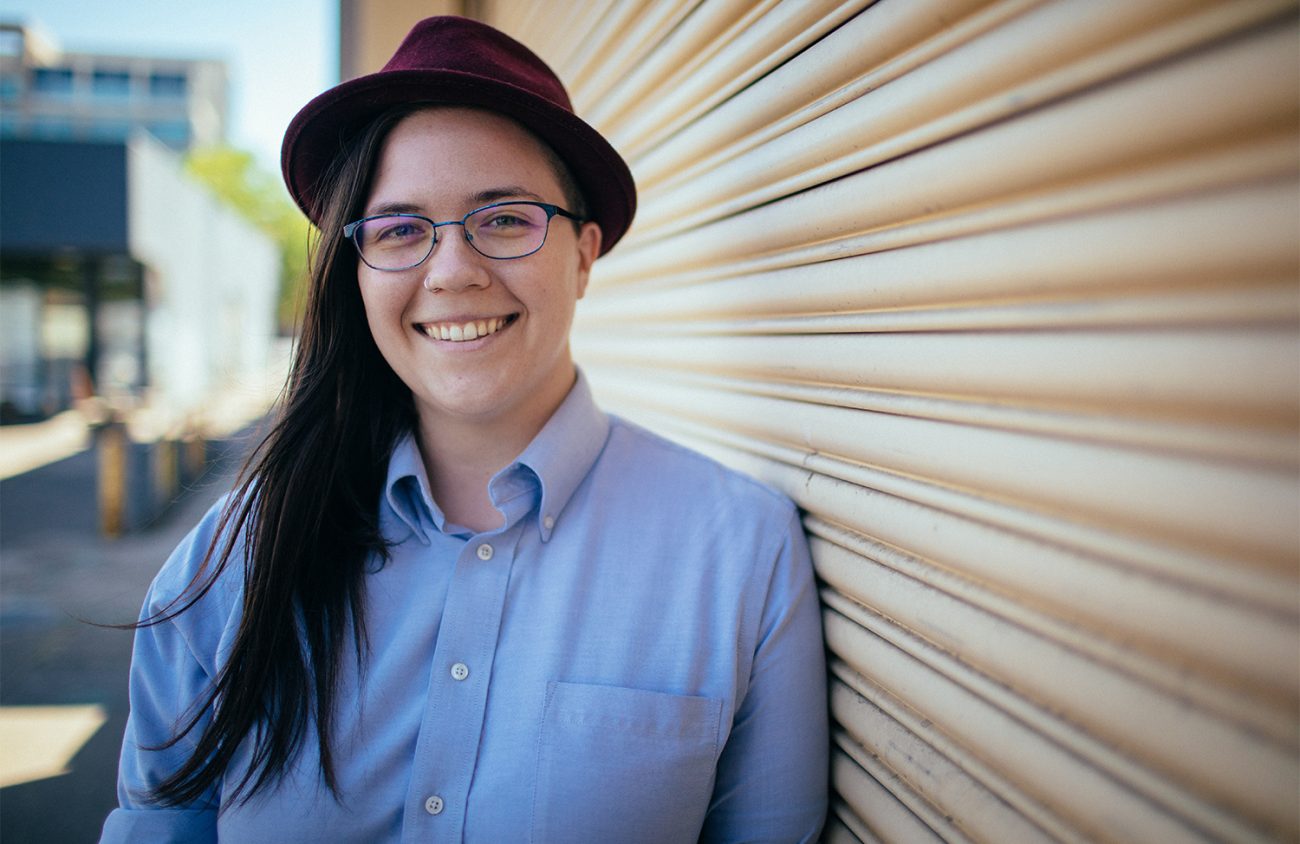Andy Darnall, co-founder of NuRealms who identifies as queer, genderqueer and afab (assigned female at birth), praises the game-development industry’s inclusivity. A part of what drives Darnall’s perspective is Bitforest, a community group for local game developers.
Darnall entered the industry through Lane Community College’s Simulation and Game Development degree, where he found an instructor with whom he started NuRealms, a company that develops independent virtual reality games.
But Bitforest hasn’t always been an accepting community toward the LGBTQ population. Michael Jones, the audio engineer at Pipeworks Studio in Eugene, says that one of the early members opposed any initiative that would make the group more inclusive — for example, not having nametags with gender-neutral pronouns at Indie Game Cons that take place in Eugene.
Although that person wasn’t against someone who was in transition at that time, he was “refusing to acknowledge they/them because it doesn’t make grammatical sense to him,” Jones says. And by doing so, Jones says that was “disavowing a person’s existence.”
That early member eventually moved to Florida and left the community.
Jones and other game developers created Bitforest around 2015 to bring people together, create games and meet other professionals or others interested in programming outside of work projects. Bitforest has weekly meetings, game jams (when they create games that follow a common theme over a weekend) and indie game cons.
Written in their code of conduct as unacceptable behavior in meetings is “intimidating, harassing, abusive, discriminatory, derogatory or demeaning speech or actions by any participant in our event locations or online community, at all related events and in one-on-one communications carried out in the context of community business.”
Currently, Ted Carter serves Bitforest as a community leader. An engineer at Pipeworks and active leading member of Bitforest, he began as a hobbyist who would come to events to learn how to program and develop games. Eventually, Pipeworks hired him.
Being gay, Carter says Bitforest creates more space to address LGBTQ issues than in the game industry.
“The group allows for more diverse voices than one would normally encounter in the games space,” he says.
Carter himself likes to create games that express his current dilemmas. From an LGBTQ perspective, he says, the freedom to be creative is therapeutic.
While he agrees Bitforest is an inclusive game development community, he says he often feels an “ambassador syndrome” in the workplace. Carter says co-workers see him as the representative for the entire LGBTQ community.
“People come to me knowing I’m from the LGBTQ community asking things like, ‘Is this okay?’ or, ‘Can you proofread this for me?’” he says. “I think that is positive, but it’s also a little bit uncomfortable.”
Apart from the game development industry is Amanda Jo Langley (who uses they/them and sometimes she/her), a University of Oregon graduate student in the music technology program. They have worked in Eugene programming business software. They say they identify as queer and lesbian, but there never was a conversation about their identity at work.
“In Eugene, I don’t know if anyone was out, it was a smaller company, but I don’t know, it never really seemed like a thing,” Langley says.
Still, Langley says the tech industry here did feel more accepting than back in Wisconsin, where they’re from.
“One of the reasons I moved from the Midwest is because it seems more accepting here in Eugene and the West Coast,” they say. “And when I was working back in doing business applications and that kind of environment it did feel more accepting to me.”
But Langley says that tech companies want more diversity in the workplace, but it’s difficult to find minorities who are interested in programming, especially women.
That’s true for the game industry. Carter says he’s optimistic about the future. He says that companies and the community care about representation. It’s still not utopia, but the local game development industry is nonetheless becoming friendlier toward the LGBTQ community and other minorities.
This story has been updated.
